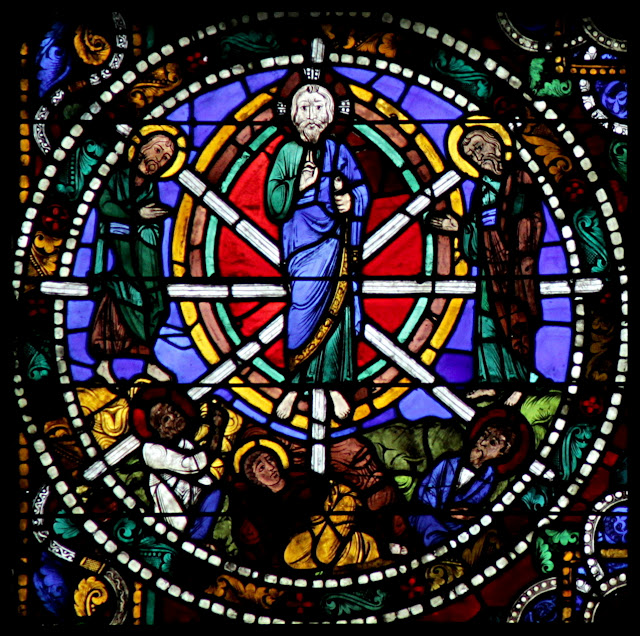Our Lord's Glorious Humanity, His Temptations, the Transfiguration, and the Reverence We Owe Him
Our Blessed Lord and Saviour Jesus Christ is truly God and truly man. He is the second person of the Blessed Trinity, made flesh. His humanity was true humanity. He was indeed made a man like us in all things apart from sin, but we should remember that being without sin also makes Him very different from us in some respects. Being truly God, Our Lord did not have original sin, did not have disordered desires, never committed a sin, and could never commit a sin.
When the devil tempted Him, Our Lord responded in peremptory fashion, and with absolute authority. Hebrews 4:15 is sometimes erroneously translated to imply that Our Lord was subjected to all the temptations that we have, though he tried awfully hard and managed to resist. This gives the quite false impression that Our Lord might have actually sinned.
In fact, the world for “temptation” in Greek also means a test or trial. Our Lord was not subject to disordered desires or past habits of sin (the two commonest sources of our own temptations) but He was subject to all the trials that we have, and worse, especially in His agony in the garden when he knew in His own soul the evil of all the sins of the world that had ever been committed or ever would be committed. (For further information, see my article: Clearing the confusion over the word "temptation")
The apostles were worried when Our Lord said that He was going to Jerusalem to be put to death and on the third day to rise again. St Peter even rebuked Him and was sharply reprimanded for doing so. It was because of the fear and anxiety of the apostles that Our Lord took St Peter, St James, and St John up the mountain of Tabor and was transfigured before them.
At the transfiguration, the apostles did not see the beatific vision: that is only seen by the saints in heaven. What they saw was the royal splendour which belongs to that humanity which Our Lord assumed. He wanted the disciples to see His glorified humanity so that their fears would be allayed.
St Leo the Great explained that when the Father said, “This is My beloved Son, in Whom I am well pleased; hear ye Him”, he was saying something equivalent to:
“This is My Son not by adoption, but My very Own; not created from, or of another substance, or out of nothing, but begotten of Me not of another nature, and made like unto Me, but of Mine own Being, born of Me, equal unto Me.”
Unlike the apostles, we do not see this glorified humanity of Christ, though some great saints receive a privileged experience of God which is a herald of what they will experience one day in heaven.
The Transfiguration helps us to understand the greatness of the humanity of Jesus. He is not “just a man”, he is God made man. Even as man, He is not “just like us”, but is completely sinless.
Our culture tends to shy away from expressions of reverence and respect to other people. We are encouraged to call doctors and other professionals by their Christian name, for example. We might be tempted to treat Our Lord like this, in a familiar fashion, presuming that when he said to the apostles “I call you friends”, this excuses us from reverence for Him.
It is true that we should not have a servile fear of Our Lord or be frightened to approach Him. He has encouraged us to trust in His mercy and to speak to Him in a childlike way, to pour out our troubles and worries, to offer heartfelt sorrow for our sins, and to thank Him humbly for all His gifts to us. At the same time, we call Him Lord and Master, we bow down in reverence before Him, we praise Him for His glory and majesty. He is our loving Saviour and friend indeed, but He is also Our God, almighty and infinite in every perfection. Our loving confidence in Him is not the same as a careless familiarity. It is good for us to bow down in reverence and awe when He comes down to visit us in the consecration at Mass and say, “My Lord and my God.”
PICTURE CREDIT: Wikimedia. The Transfiguration of Jesus. Chartres Cathedral. Photo by user Micheletb. Creative Commons Attribution-Share Alike 4.0 International licence.
